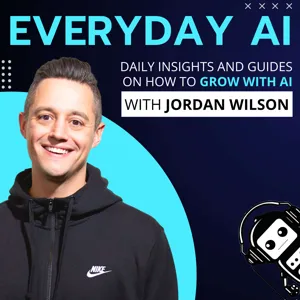Podcast Summary
New rules to reduce emissions from locomotives and larger trucks in California: California is enforcing new rules to retire old locomotives, upgrade engines, and accelerate adoption of zero-emission medium and heavy-duty vehicles, with a goal of having all cargo trucks at ports and rail yards be zero-emission by 2035.
California regulators have approved new rules to reduce air pollution and carbon emissions from locomotives and larger trucks, particularly around ports and rail yards. The rules include setting an age limit to retire old locomotives and requiring upgrades to cleaner engines, as well as accelerating the adoption of zero-emission medium and heavy-duty vehicles such as school buses, freight trucks, and delivery vehicles. All cargo trucks entering California ports and rail yards will need to be zero-emission by 2035. Amy Scott was sharing this news while enjoying a Pilsner from Von Trapp Brewing Company during the Make Me Smart economics podcast.
California's new rules for electric trucks could reduce premature deaths and cancer risks: California's push for electric trucks by 2035 in polluted areas could save lives, but challenges like electric truck supply and charging infrastructure development persist.
California's new rules aiming to replace diesel trucks with electric ones by 2035 in areas with high pollution levels could significantly reduce premature deaths and cancer risks. However, challenges include the supply of electric trucks and the development of charging infrastructure. The truck driver interviewed expressed concern about the timeline for transition, and the large batteries required for electric trucks will take longer to charge. The impact of California's regulations could be significant, as the state has a history of setting trends in emission standards. Additionally, the financial crisis era concept of credit default swaps was mentioned as a potential analogy for the risks and uncertainties involved in the transition to electric trucks.
Uncertainty over US debt limit leads to rise in credit default swaps: Wall Street prepares for potential US debt default, making profits from credit default swaps, while virtual try-on tech gains popularity in retail sector, and stretch limos may be on the way out
As the US approaches the potential debt limit deadline, trading on credit default swaps is on the rise. This is due to the uncertainty surrounding the country's ability to pay its debts on time. Wall Street is looking to capitalize on this situation, and if the US does default, those with credit default swaps against treasury bills will stand to make significant profits. While some may view this as a testament to the capitalist system, others may shudder at the memory of the financial crisis caused by similar practices. Meanwhile, in other news, there's growing excitement about virtual try-on technology, which allows shoppers to see how clothes might look on them before making a purchase. This technology could be particularly useful in the current climate where changing rooms are closed due to health and safety measures. Despite this, some remain skeptical about the demise of stretch limos, with reports suggesting that they are becoming less popular at automotive shows. However, others see this as an opportunity to move on and embrace new trends. Overall, it's an interesting time in both the financial and retail sectors, with innovation and uncertainty driving change.
Balancing New Technologies and Simple Pleasures: People have diverse preferences for space, technology, and experiences. While some crave practical solutions and simpler technologies, others look forward to new discoveries and innovations. It's essential to find a balance and appreciate both old and new.
People have different perspectives on the value and necessity of having more space, technology, and experiences. During a podcast discussion, the hosts expressed their desires for practical solutions like dividers and simpler technologies, while also expressing excitement for new discoveries and innovations. For instance, some people are looking forward to the return of buttons and knobs in cars, while others are eager to try out new social media platforms. However, there are also concerns about the potential drawbacks of excessive technology and the loss of simpler experiences. For example, some people believe that AI-generated music lacks the authenticity and emotion of human-created music. Ultimately, it's important to strike a balance between embracing new technologies and holding on to the things that bring us joy and comfort. Whether you're a fan of buttons and knobs or touch screens, old music or new, it's all about finding what works best for you and making the most of it.
The Role of AI in Radio Broadcasting and Podcasts: AI is increasingly blurring the line between human-created and machine-generated content in radio broadcasting and podcasts, raising concerns about artistic elements and the potential impact on content quality.
The line between human-created content and AI-generated content is becoming increasingly blurred, especially in the realm of radio broadcasting. While some argue that the everyday radio content produced by humans lacks the artistic element to be truly threatened by AI, others find it concerning that AI has been able to fool people into believing it was human-made. This discussion also touched upon the potential implications of the increasing prevalence of AI in media, and the potential impact it may have on the quality of content we consume. Furthermore, the podcast industry was highlighted as an example of this trend, with the production of Million Bazillion, a podcast from Marketplace aimed at explaining complex financial concepts to kids, showcasing the potential of AI in creating engaging and educational content. Overall, the conversation underscored the importance of staying informed and aware of the role AI is playing in our media landscape, and the potential implications it may have for the future of content creation.



